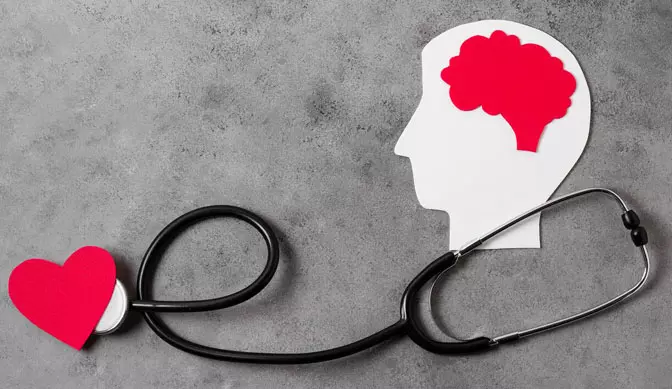
Mental and physical health are interconnected. Stress, anxiety, and emotional exhaustion can directly affect our bodies, and I have a real story to share that shows exactly how this happens in practice.
I got Shingles after 40: another chapter in my turning-40 crisis
So… I got Shingles.
Just one more thing to add to my famous turning-40 crisis.
I was already on an emotional rollercoaster. I was in the middle of trying to remove my IUD — something I attempted three times, unsuccessfully, because the IUD string wasn’t visible. The professionals tried everything, but couldn’t remove it. The solution was to schedule a surgery with anesthesia. The date? July 3, 2025.
But on July 2, I was diagnosed with Shingles, or herpes zoster as it’s formally called. I had never even heard of it before.
How did it start?
On Monday, June 30, I woke up with a swollen eye. I thought it was an allergy. I’m allergic to pollen, dog hair, and things like that, so I didn’t think it was anything serious. I took the allergy medication my doctor had recommended before and went on with my day as usual.
The next day, July 1, I went to work normally, still thinking my body was just reacting to a typical allergy. But that night, everything got much worse. I couldn’t sleep because of the itching. Little bumps started appearing on the left side of my breast and around my ribs.
My husband thought it was heat rash, which actually made sense since it’s summer here in New York. But something inside me said: something’s not right.
In the meantime, I talked to a friend and described the symptoms. She said: this sounds like shingles.
At the time I thought: shingles? What’s that?
But since I was already heading to the ER, I decided to check there.
I got to the emergency room, explained the symptoms, and it didn’t take long to confirm the diagnosis: Shingles.
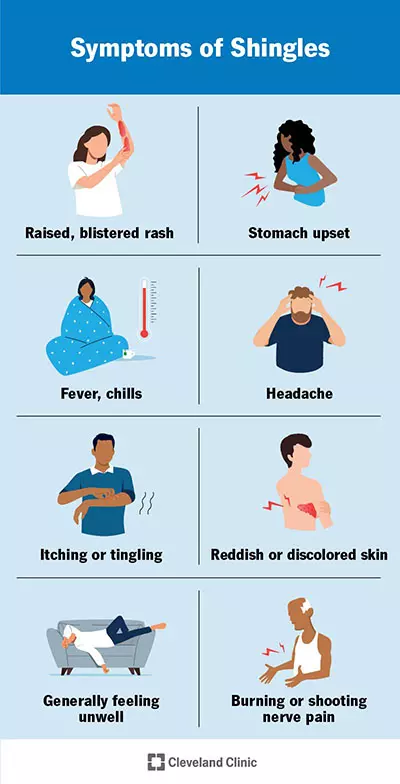
Diagnosis and treatment
The ER doctor prescribed three antiviral medications for seven days. I left with the meds in hand, thinking that would be the whole treatment.
But later, talking to another friend, he mentioned his husband had shingles too and also used a cream.
So I thought: would that help in my case?
I called the clinic and spoke with the doctor. I explained that even with the antivirals, the itching was still very intense and bothering me a lot.
She prescribed an anti-inflammatory cream specifically to relieve the skin symptoms caused by Shingles.
She sent the prescription directly to the pharmacy. I picked it up the same day and added the cream to my treatment.
Honestly, it made a big difference in relieving the itching and discomfort.
Important: The medications used to treat Shingles, including creams, must be prescribed by a healthcare professional. Each case is unique, and self-medication can be risky.
What might have caused it?
In my opinion — and it lines up with what I later learned — it was a combination of factors:
- Weakened immune system
- A lot of stress
- Anxiety due to the surgery. Even though I had just spent the weekend traveling with a friend, I was tense and worried about the surgery scheduled for July 3, and I also had a consultation scheduled for July 2. Deep down, even trying to relax, my mind wouldn’t shut off. I think all that tension and anticipation affected my body and contributed to triggering the virus
- Lack of sleep
- And some emotional exhaustion
Even though I talk so much about mental health — a topic that’s so present in my life — I’m not immune to going through moments of imbalance. The truth is, no amount of knowledge protects us from the impact of real life. And I felt that on my skin, literally.
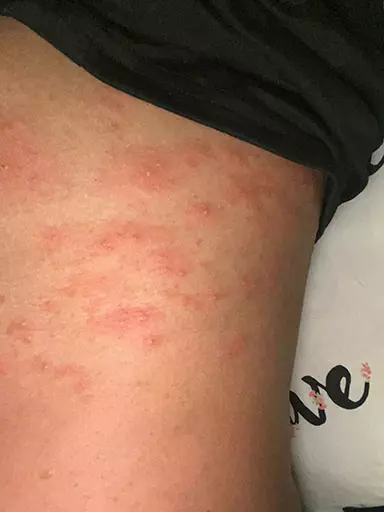
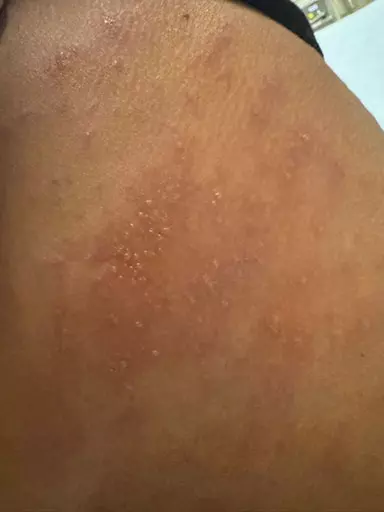
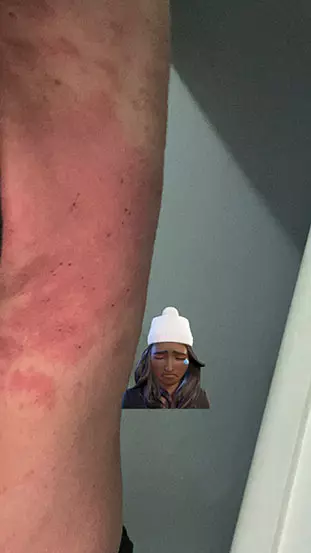
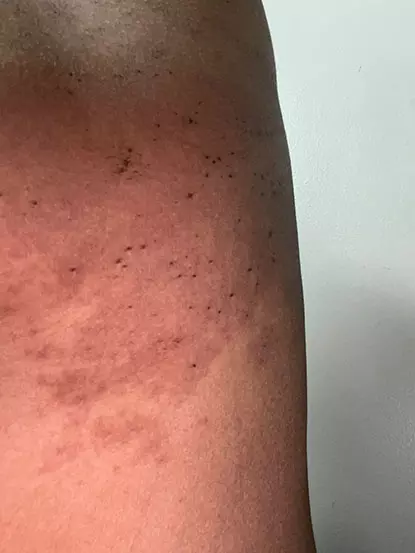
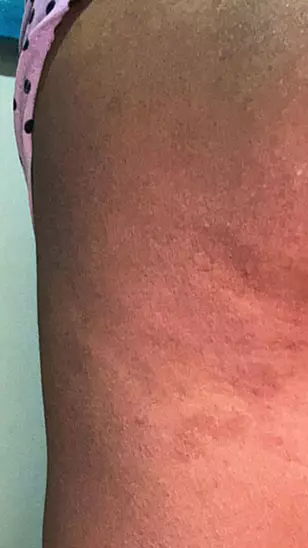
🧠 Important Reflection:
Even people who talk about mental health, who study it, who work in the field, who are aware…
Also get sick.
Having information doesn’t protect us from human emotions, stress, overload, or anxiety.
What makes the difference is recognizing the signs, acknowledging what we feel, and seeking help when necessary.
You’re not weak for needing care. You’re human. And that’s okay.
That's why I decided to share my experience here. Why I believe sharing saves lives
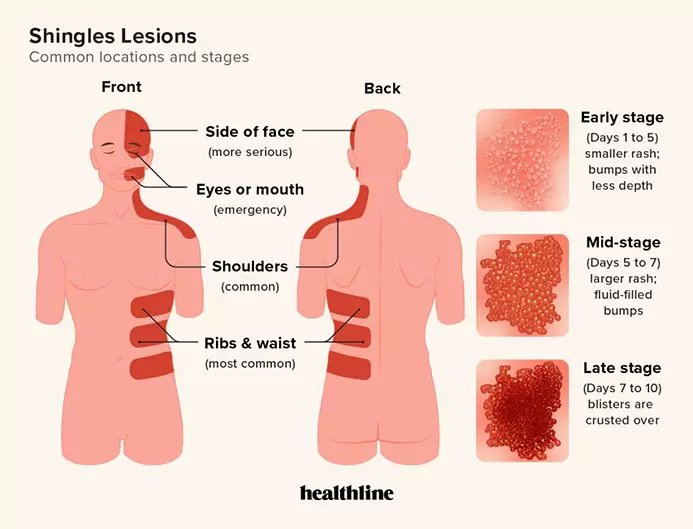
What is Shingles (Herpes Zoster)? Understand the disease
After the scare, I researched a lot about what I was facing. Here’s a clear and direct summary to help you understand it better and protect yourself:
✅ What causes Shingles?
Shingles is caused by the varicella-zoster virus, the same one that causes chickenpox.
After you have chickenpox (usually in childhood), the virus stays dormant in your body.
Years or even decades later, it can reactivate and cause Shingles.
🔁 What can reactivate this virus?
- Weakened immune system
- Physical or emotional stress
- Lack of sleep
- Medical procedures or surgeries
- Aging (more common after age 50)
- Illnesses or medications that weaken the immune system
- Chemotherapy, HIV, corticosteroids, among others
❌ Is it airborne?
No. Shingles is not transmitted through the air like the flu or a cold.
You don’t “catch” shingles from someone else.
But attention:
If you’ve never had chickenpox or haven’t been vaccinated, you can catch chickenpox if you have direct contact with the fluid from shingles blisters.
🧠 Summary:
- You don’t catch shingles from someone else
- The virus was already in your body, dormant
- It can reactivate due to stress, low immunity, or illness
Is it contagious?
Yes, but with some caveats
You don’t directly transmit shingles, but you can transmit chickenpox (from the same virus) if the other person:
- Has never had chickenpox
- Has never been vaccinated
- Comes into contact with the fluid from the blisters
🕒 When is it contagious?
- While the blisters are open and have fluid
- Once they dry and crust over, the risk of contagion disappears
- If covered and well protected, the risk is much lower — but it’s still best to avoid direct contact
🧍♀️ Who should avoid contact with you during this period?
While the blisters are active, avoid close contact with:
- Pregnant people (especially if they haven’t had chickenpox)
- Babies, especially newborns
- People with compromised immune systems, such as:
- Cancer patients
- People with HIV/AIDS
- Transplant recipients
- People taking immunosuppressive medication
- Cancer patients
🩹 Important care tips:
- Keep the affected skin clean, dry, and covered
- Avoid scratching or touching the blisters
- Wash your hands frequently
- Don’t share towels, clothes, or bedding
✨ One last important message:
See a doctor and explore treatment and vaccination options. Your doctor may recommend the shingles vaccine to help prevent future outbreaks. It is always important to seek guidance from a specialist.
Even if you think it’s just an allergy, heat rash, or something simple.
Our body speaks to us, and it’s important to listen and respect those signals.
This was my experience with Shingles.
I hope it helps someone take better care of themselves, not ignore the signs, and get informed.
Para mais informações, acesse o pdf abaixo.
Fonte: www.gsk.com.br
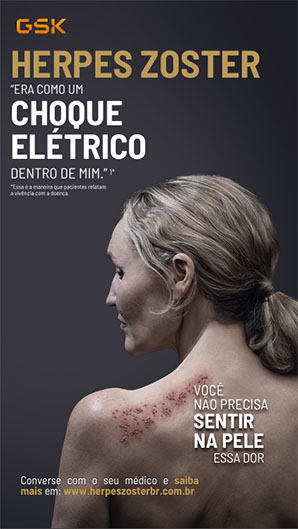
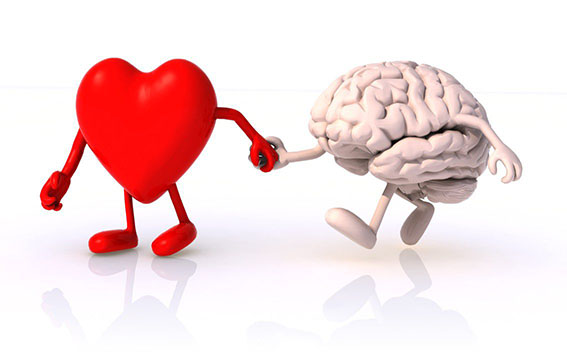
If you want to share this with someone who may be going through it, please do..
Taking care of our physical and mental health is an act of love.

